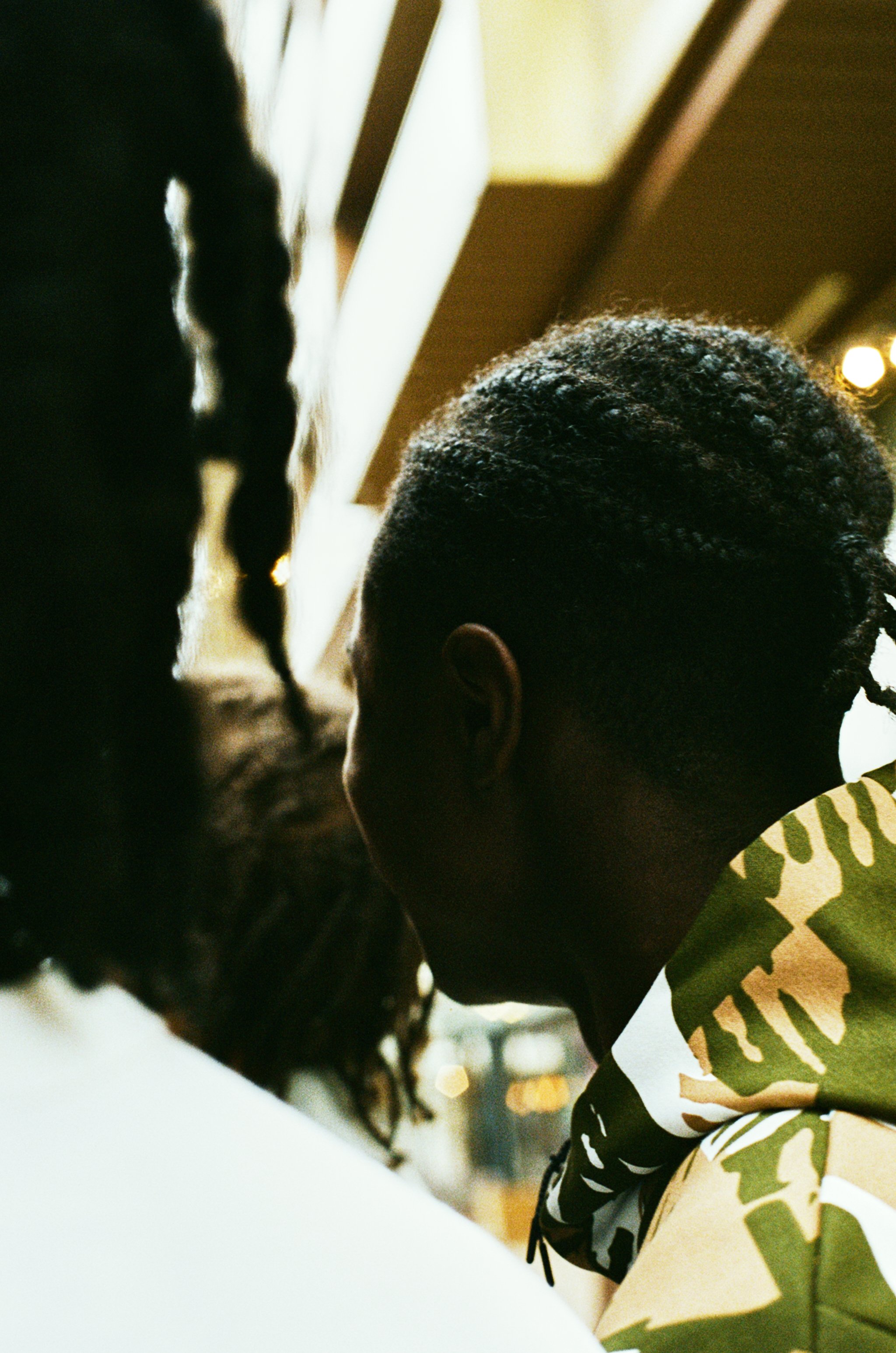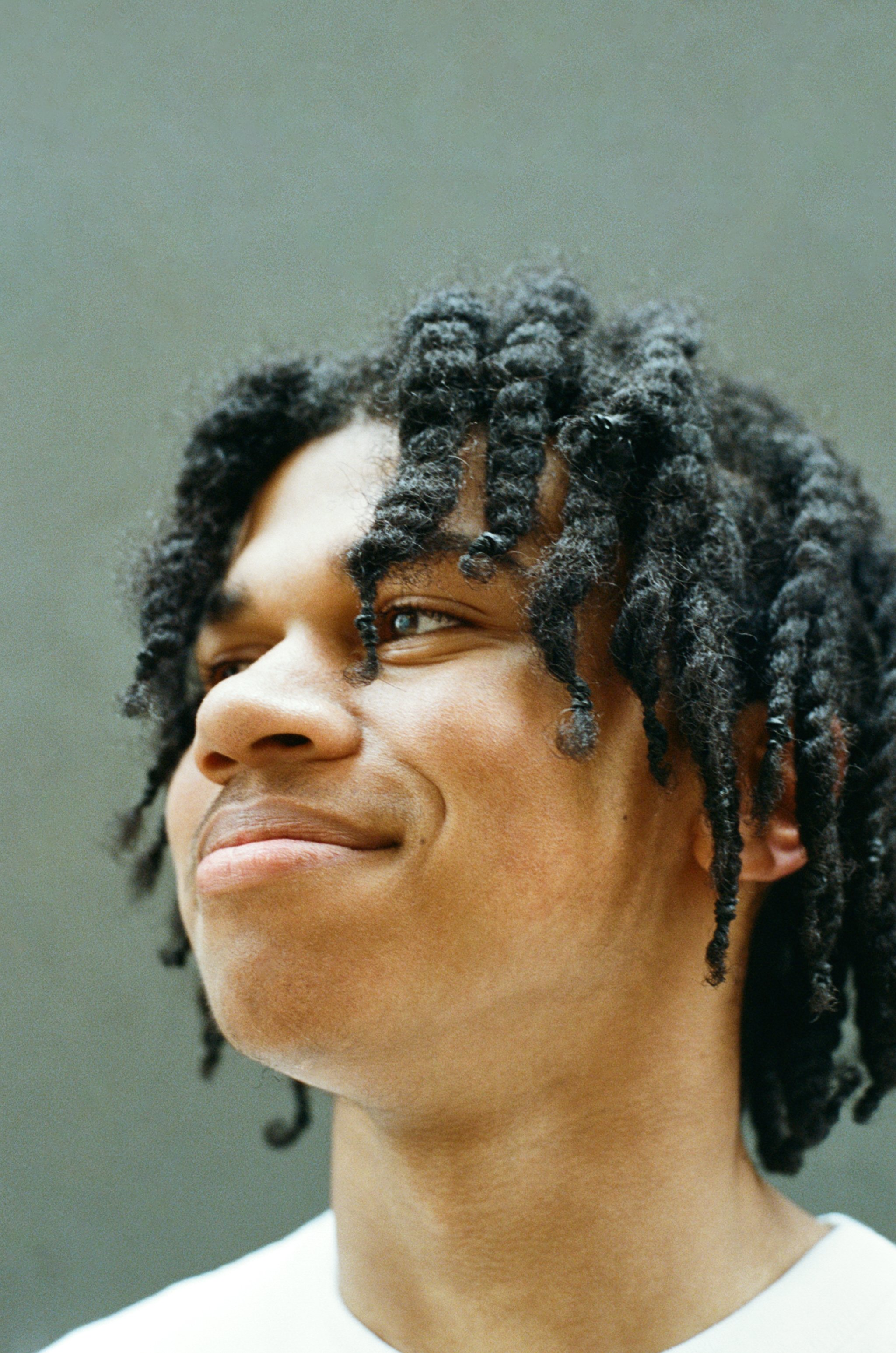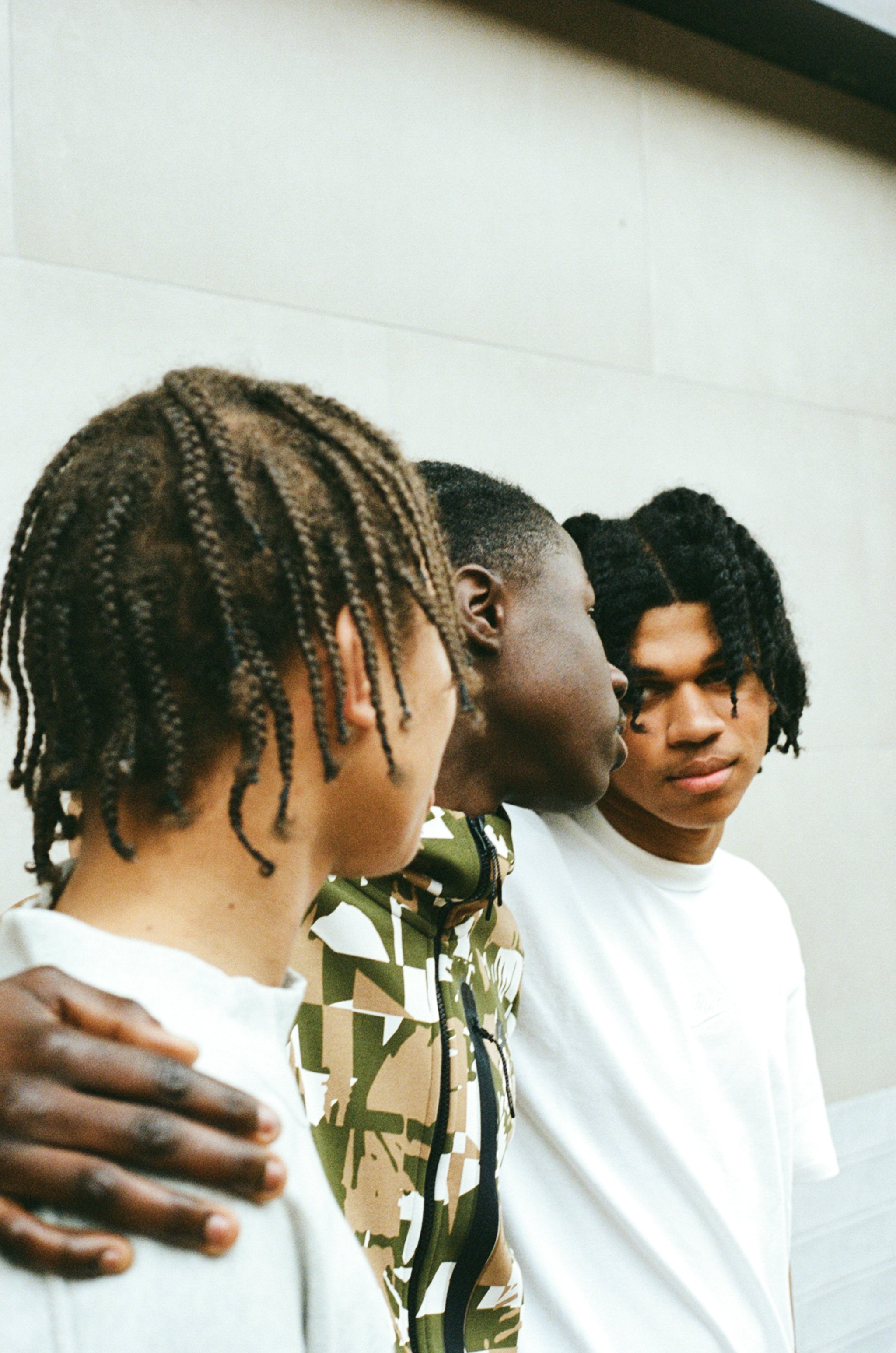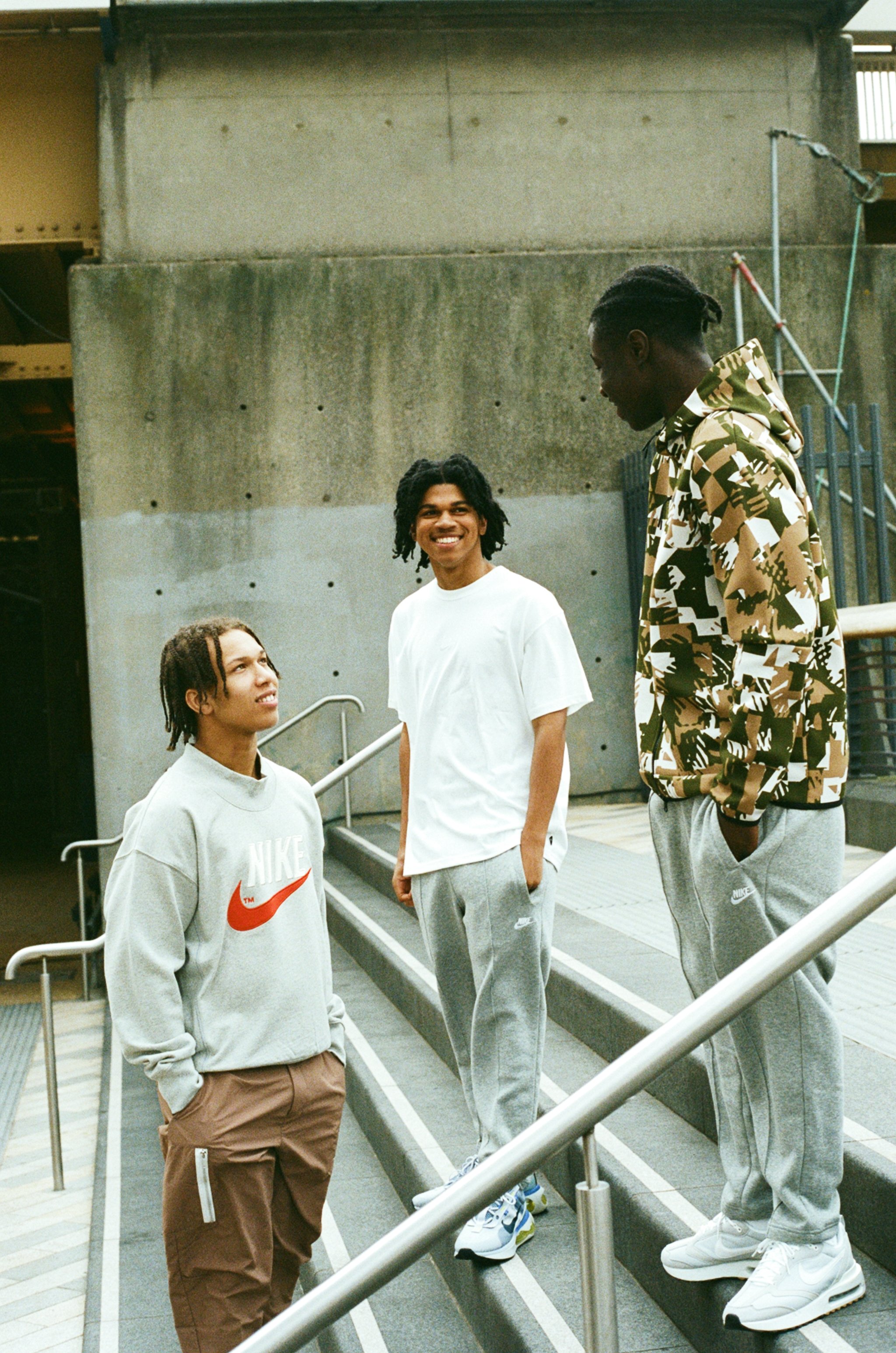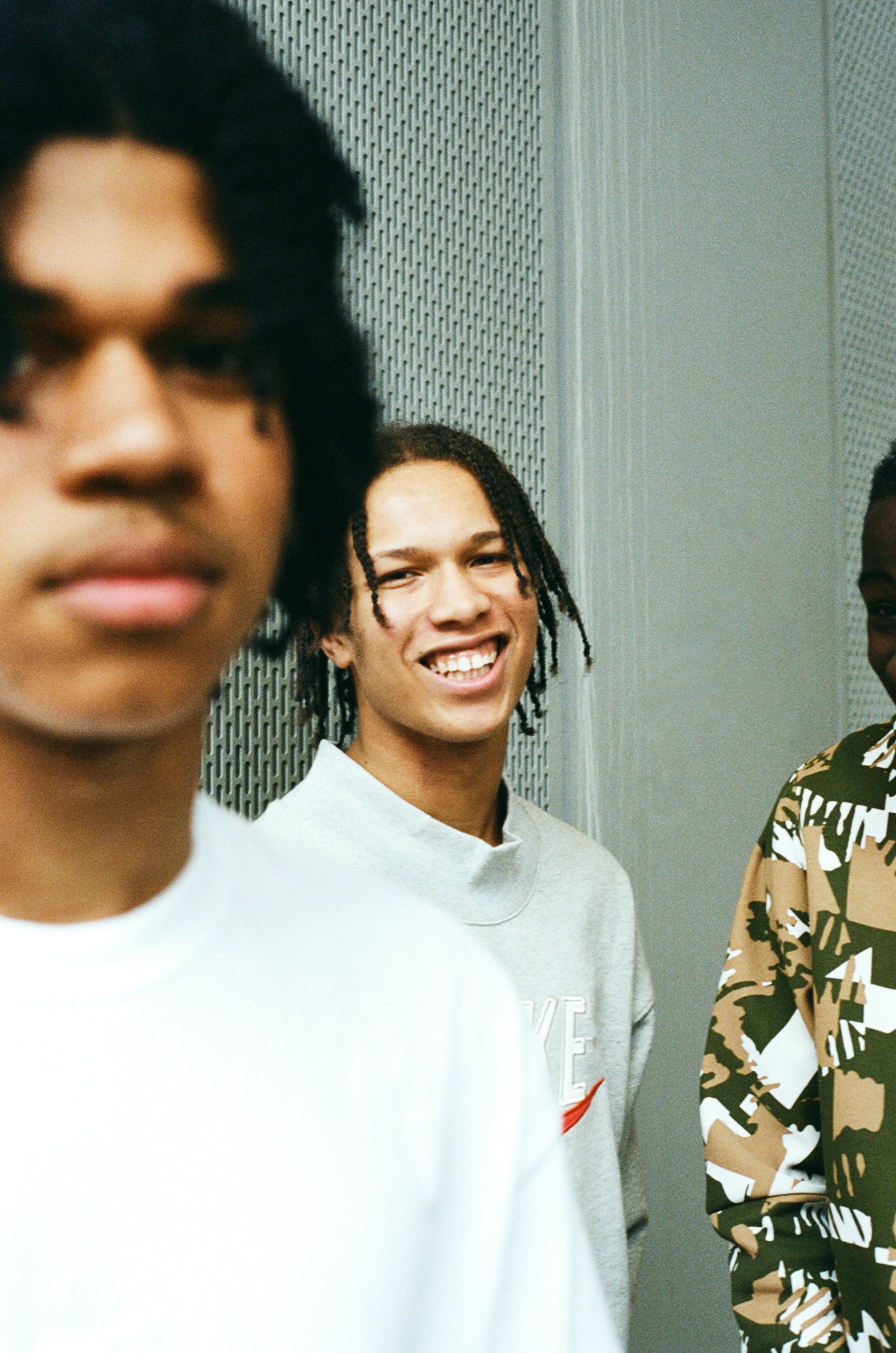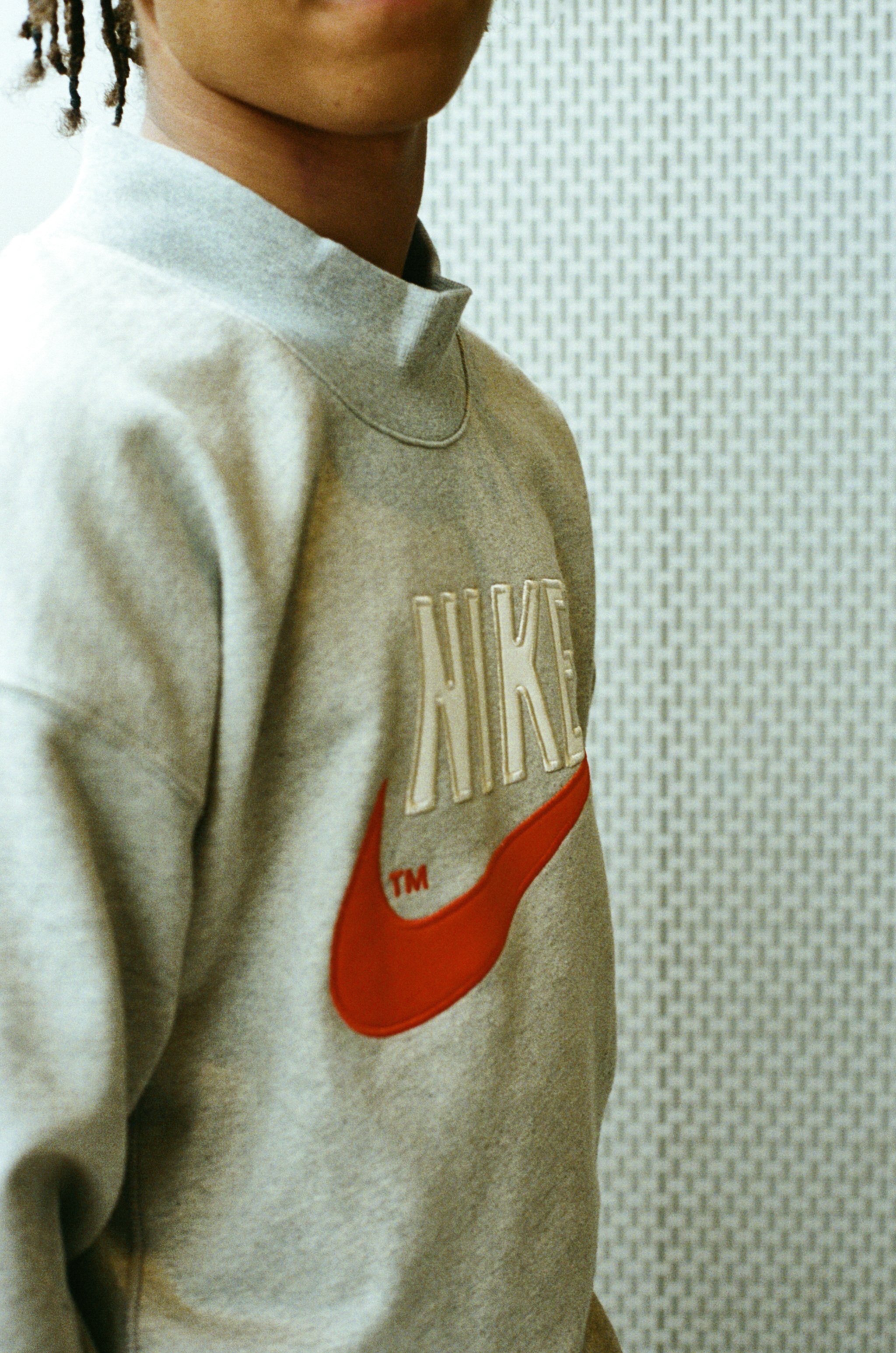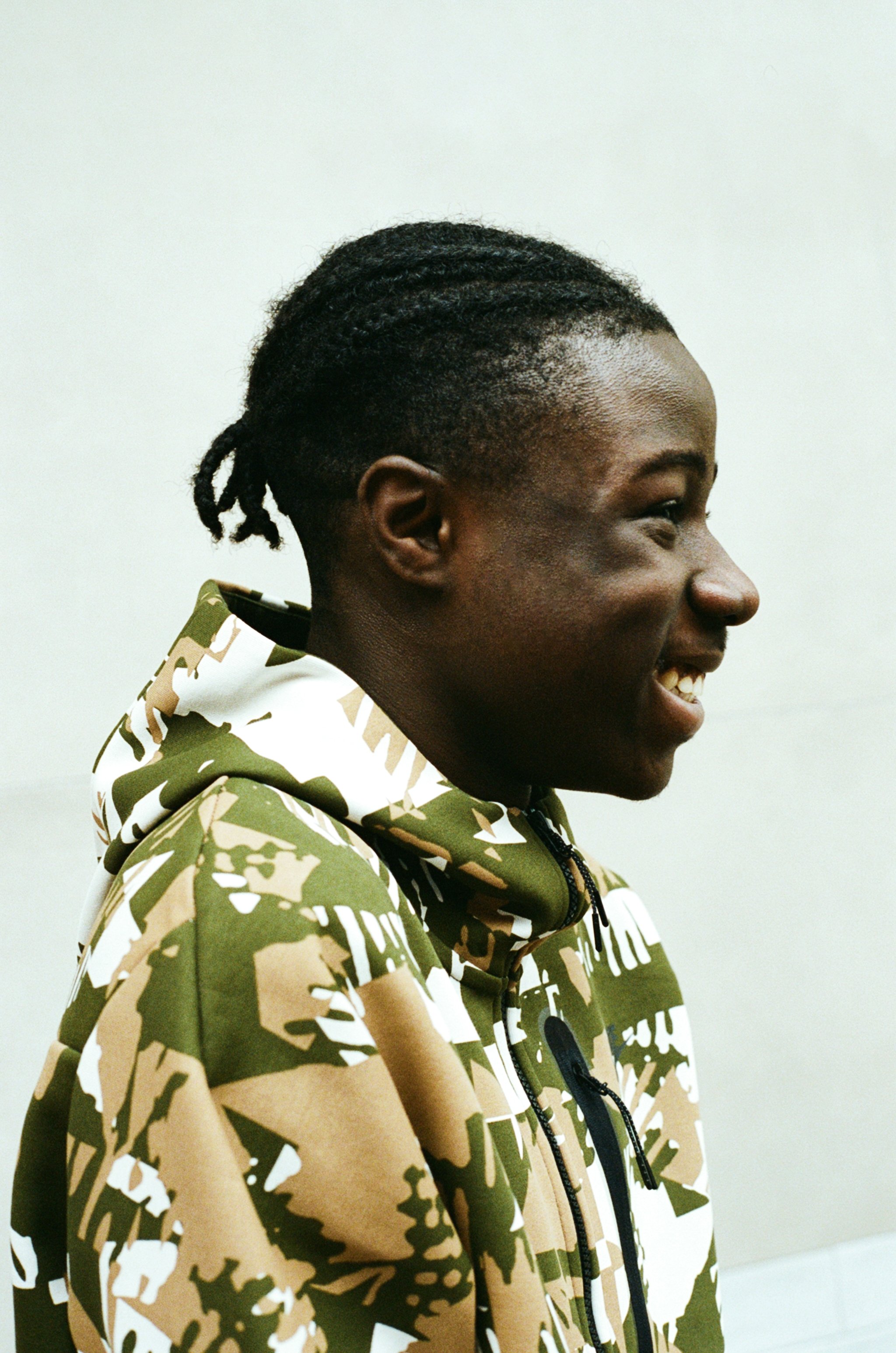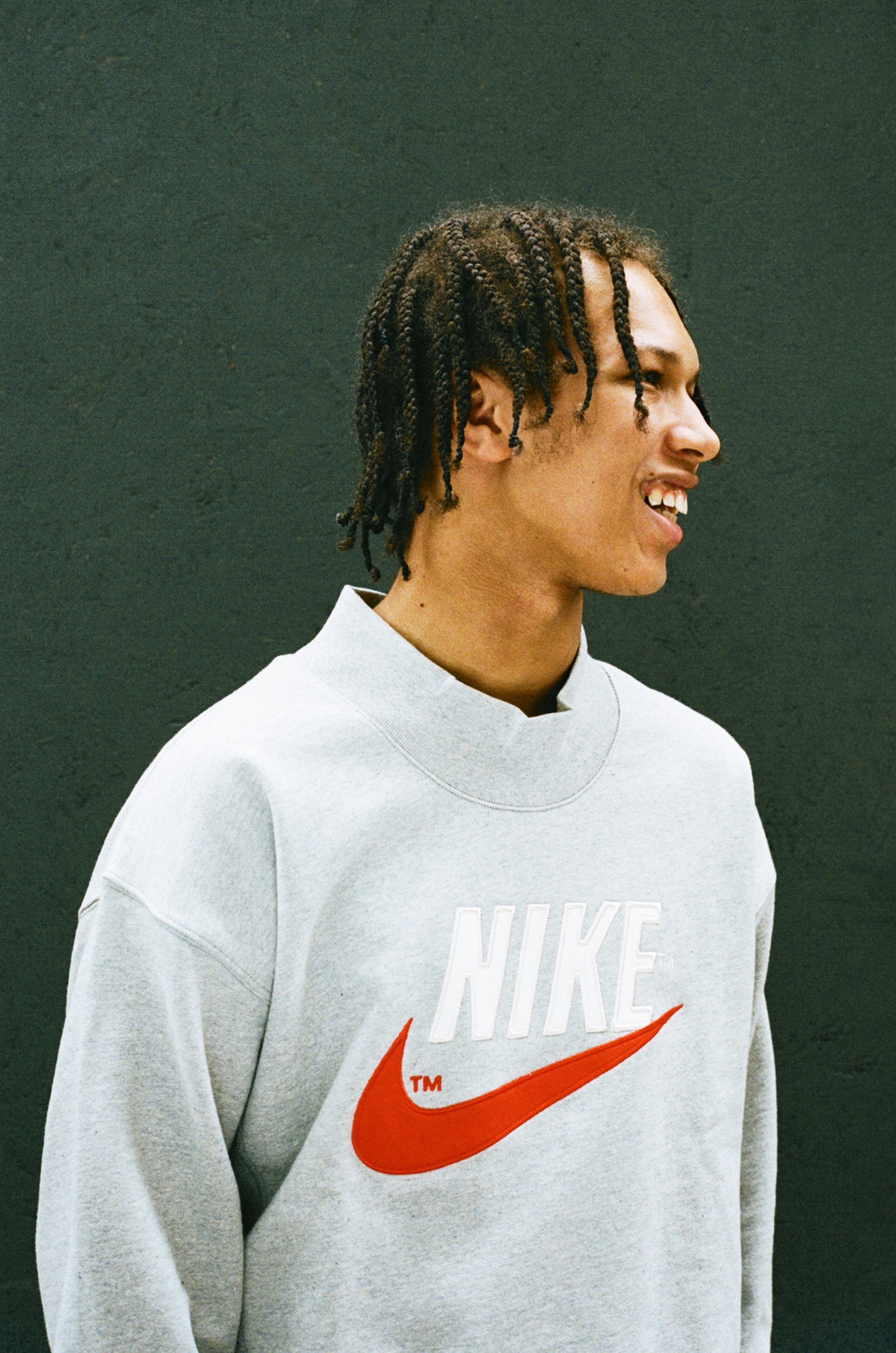Let’s Let Black Boys S.M.I.L.E
The S.M.I.L.E-ing Boys Project is breaking down the boundaries of how we see young Black boys, and how we let them see themselves.
Organisation: @smilingboysproject
Photographer: @ejatushaw
Creative Director: @roena
Creative Lead & Stylist: @jermainerrobinson
Interviewer: @nlalleyne
In collaboration with creative agency: @vibecalledtech @lewisdaltongilbert
Special thanks to: @nikelondon
In Spring 2021, the UK government opted for increased police presence in majority non-white areas to combat a recorded rise in youth violence. Tactics to implement this included an increase in stop and searches, and policing within schools. The outcome of this was non-white children, and particularly Black boys, being disproportionatly exposed to criminalisation. There is no robust evidence to suggest these methods have ever been transformative. In fact, evidence suggests that this approach further reinforces negative stereotypes and the poor expectations that society holds Black boys ransom to. It would seem that no blue lights or sirens can unlock a child’s potential to realise their most vibrant aspirations.
This is where international artist and creative facilitator, Kay Rufai, stepped in with a splash of colour and a different perspective in solving this systemic problem. He created the S.M.I.L.E-ing Boys Project, an eight week long project that works with 20, 13-year-old Black boys in London. The project is informed by five years of cross continental public health research and is designed as a direct response to rising levels of youth violence and the increasingly negative media portrayal of Black boys as both perpetrators and victims.
Supported by the Nike London Grant Initiative – a fund created to fuel non-profit, sports, wellness and arts organisations working to solve the inequity faced by Black youth – the S.M.I.L.E-ing Boys Project’s objectives are to:
Re-paint the dingy stereotypes of Black boys, many of which we learn unconsciously through visuals.
Afford the boys the tools to re-paint and brighten their own inner worlds, which can commonly be gloomy as a result of internalising destructive stereotypes.
The outcomes are more than just radiant pictures of smiling Black boys on billboards and community space around London. Participants, parents and teachers describe improved ability to cope with the mental health of Black boys, improved academic performance, and a reduced propensity to aggression through dynamic problem-solving.
Speaking with Marley, Cieran and Nana, participants of the S.M.I.L.E-ing Boys Project, along with project founder, Kay Rufai, I had a chance to discover the boys' insights on the eight pillars and learn how such insights have impacted them in daily life.
Part I: Marley, Cieran and Nana, the boys
Natalie: Can you explain the importance of trust?
Cieran: Trust is one of the most important things that you have in this, because if there's no trust we'll be at war all the time mentally, physically... nationally, internationally – we'd always be at war. We have to trust each other; people are a lot more depressed, upset and hurt because they don't have anyone to turn to that they trust to speak to. I feel like that's why you need strong friends and people that you trust. It's nice to know whatever I say will stay with my friends – I'm staying in their hearts and in their minds.
Natalie: What have you learned about demonstrating balance? School, sports, relationships – managing your time.
Nana: I feel like it's important to balance what you do, because it can really affect what will happen in the future. I know the most important thing we have to do right now is school, and there are times when you should do other things; but you need to focus on the future, what it looks like to you – because in the future you can have all those things, even more, if you have a comfortable job.
Natalie: How do you take care of your mental health?
Marley: I have learned to express myself to my friends, Cieran and Nana. I've been very open with them; I've actually cried to them about some of the struggles that I've been going through. If I didn't have them I don't know what kind of state I'd be in now, I'd be struggling. There was a time I was really down and had no one else to speak to. I talked to Cieran and he made that all go away.
Cieran: I feel like before this project I would keep a lot of things bottled up, I wouldn't speak too much. When I joined the S.M.I.L.E-ing Boys Project, I reckoned everyone was [going to be] different to me, but I realised everyone is kinda the same. The struggles that we have gone through might not be the same, but the way we deal with them are the same – mainly from society putting us down, telling us that men are built to be strong, they shouldn't cry, they shouldn't be emotional. But through S.M.I.L.E-ing Boys I feel like I've seen a lot more, I now know I should be taking care of my feelings by speaking to my friends, girlfriend, just people that I trust. I'm happy knowing that when I'm mentally hurting, I can always turn to these people to be there for me.
Natalie: Outside of this project – so say at school, a place you are very often – do you feel that your voices are heard, and understood?
Cieran: Yeah, at times, but I don't think [as much] before the project. There was an incident not long ago – I wanted to speak to the teacher, I came into one of my lessons late, and my teacher was telling me I was 10 minutes late to my lesson. I was only like three minutes late, but because the school hadn't clarified and read certain rules to all the teachers, a lot of teachers were confused, and I was getting into a lot of trouble that I shouldn't have been; or the teachers were making life a little bit hard, and it wasn't necessarily their fault. I ended up speaking to the headteacher, and then the next morning she sent an email to all the teachers and staff [clarifying] the rules on being late. I feel like my voice can be heard, but before we didn't know that.
Natalie: What would you say to boys your age who haven't done a S.M.I.L.E-ing Boys project that they can take away, even just from seeing your pictures?
Nana: Black people wearing colour shouldn't mean they are gay. And to understand other people's mental health; you don't know what a person is going through or what they've had to deal with. So you should always be aware – let's have a bit of awareness!
Cieran: I wish that boys would take their mental health a lot more seriously. I feel like a lot of boys out there play down their emotions so much, eventually it eats them up inside and they become this person that they never really wanted to become. Then they see how all these other boys may be acting, whether it's joining a gang, hurting other people, just being silly, not taking school seriously... I wish they would just take their mental health seriously and speak to someone; and even if you can't speak to someone, stretch, go for a walk, clear your head, consider your thoughts – it might sound a bit crazy but speak to yourself.
Marley: I wish that boys would be themselves and not put on a personality that they don't own. They try to put on this lifestyle that they're not about; it's all a facade and they need to stop doing it. And if they're dealing with stuff mentally, there's always someone to speak to, they're never alone. They should never deal with that battle by themselves, try to speak to someone.
Natalie: Finish this sentence, 'I am...' and then you finish the sentence with positive words about yourself.
Cieran: I am Cieran. I'm the chosen one.
Nana: I am Nana. I'm Black and beautiful.
Marley: I am Marley. I am Legend, I am strong and independent.
Part II: Kay, the founder
Natalie: Why is the S.M.I.L.E-ing Boys project important?
Kay: It's important because it provides a counter narrative to the current perception of Black boys; it challenges the way people are used to seeing Black boys. But more importantly, it provides Black boys the opportunity to create their own story, their own narrative, and to challenge even their own narratives of each other. That's why it's so powerful, and it provides them with the tools to improve their mental well-being, which is also very important.
Natalie: How could projects like these change society for the better?
Kay: Visual media is one of the ways in which we subconsciously take on information about the world. The imagery that's subconsciously permeating our minds about Black boys is often one dimensional – so that's gloomy, aggressive looking, dark colours... and I think the visual imagery from this project challenges that, because it provides the opportunity for you to see Black boys in a human, much more representative way, which hopefully changes the ways in which people engage with them, and ultimately how they are policed or how they are taught in schools. [Projects like this] become a positive kind of shift based on the way the imagery is presented.
Natalie: Has the way society treated you personally, as a Black boy and man, impacted or influenced the decision to create this project?
Kay: Yeah, absolutely. I have not had positive relations with police, which is obviously a result of the perceptions and stereotypes that are associated with Black boys and Black men. The "archetype" of what a Black boy should be is one dimensional – so you have to dress one particular way, speak a particular type of slang, and you carry yourself in one demeanour. For me, challenging that, and finding my own space within my own identity of blackness has been a journey. The idea of being expressive was something that was frowned upon, and in some cases ultimately brought about negative outcomes in terms of violence, because people often tested your manhood and masculinity. They thought expressing yourself meant that you are not masculine. So for me, providing a space for young Black boys to ultimately find their own emotional voice, to be able to authentically connect to their versions of themselves in a healthy way, was something that drove me to create the project, because I didn't have that when I was their age.
Natalie: What has been a highlight of working on this project?
Kay: Multiple highlights. Things like seeing young people who the first week that I met them, wouldn't even look me in the eye, because they were so self-conscious and so unable to speak, then show up on a day like this, and be open to having a photoshoot and really engage with lots of adults. To me, that's an incredible highlight. But also interpersonally, there's a lot of incredible stories like a young boy’s mother who sends me long emails about some life changing things as a result of this project. How her son has navigated situations that maybe in days or weeks gone by, he probably would have engaged with in a very destructive, violent way. I see [the way] he conflict resolves now, and his propensity towards violence is reduced significantly. In some cases there's an academic uplift – I get notes back from teachers talking about that. And more important than that is the sense of self that has come as a result of this project. Some of these young boys have been able to actually find themselves, been able to authentically express themselves and their emotions in different ways – they didn't have the tools to do that before.


